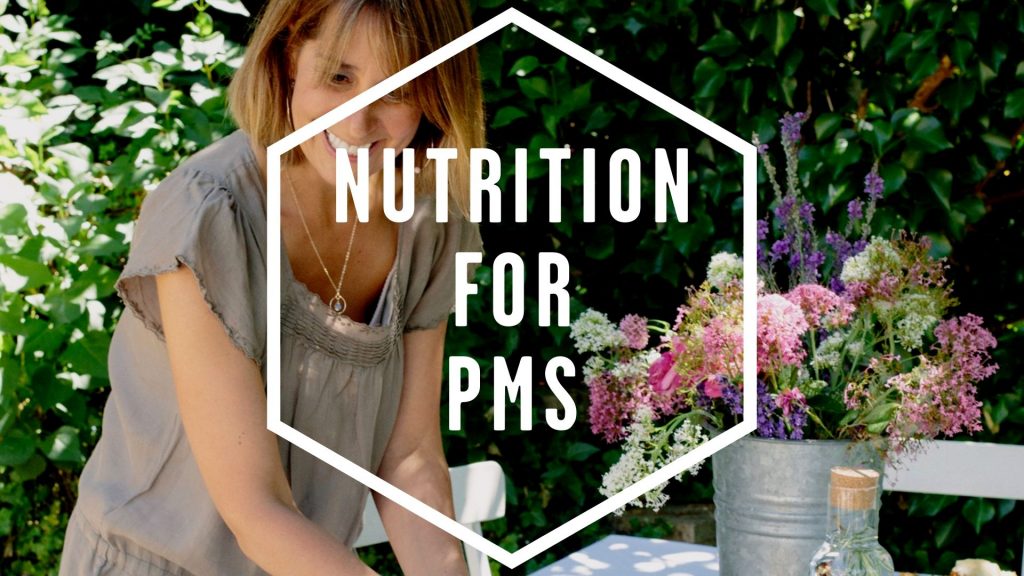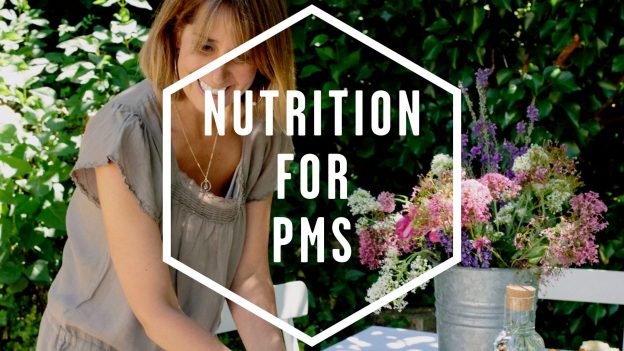
Nutritionist Henrietta Norton discusses what support for PMS is most effective.
Nearly 2 out of 5 women ages 14 to 50 experience premenstrual syndrome (PMS), a cluster of physical and emotional symptoms associated with the menstrual cycle, more commonly experienced in the five to ten days prior to menstruation. There is natural support for PMS available through nutrition.
A build-up of the hormone oestrogen may result in women experiencing an irregular cycle, extended cycles (more than 36 days in length), heavy periods, painful periods, PMS, weight gain or acne. In the longer term, these hormone imbalances may also affect other hormone glands such as the thyroid. This can lead to conditions such as fibroids or fertility challenges. This “excess” of oestrogen is significantly influenced by the efficiency of the liver to break-down or eliminate this build-up.
PMS and Anxiety
PMS-A (Anxiety) is the most common type of PMS. A build-up of the hormone oestrogen may result in women experiencing an irregular cycle, extended cycles (more than 36 days in length), heavy periods, painful periods, PMS, weight gain or acne. In the longer term, these hormone imbalances may also affect other hormone glands such as the thyroid and lead to conditions (such as fibroids) or fertility challenges. An efficient liver can break down or eliminate this “excess” or build-up of oestrogen.
Magnesium
Magnesium performs a number of critical functions in the body, including supporting the nervous system especially during times of stress. In one double blind, randomized study, women deficient in magnesium and suffering from PMS were given magnesium for the last half of their menstrual cycle. After the second month, the treatment group reported a significant improvement especially in their mood.
Omega Fatty Acids
Essential fatty acids like borage oil, evening primrose oil, and flax oil help reduce inflammatory prostaglandins and increase prostaglandins that relieve menstrual cramping, breast pain, water gain, and increased clotting.
Probiotics
Acidophilus cultures that are dairy-free and certified live can promote healthy flora in the bowel. Many women with chronic yeast infections, a history of antibiotic use, a high intake of refined foods, high stress, chronic corticosteroid use, or birth control pill use may have a bowel flora imbalance (dysbiosis). In particular Lactobacillus acidophilus and Bifidobacterium bifidus metabolize phytoestrogens found in plants and pulses into isoflavones and therefore supporting hormone balance.
Vitamin B6
Vitamin B6, also known as pyridoxine, has reported benefits for reducing PMS symptoms. Studies have shown improvements in PMS symptoms (including cramping, fibrocystic breasts, and excessive bleeding) by 70-88 per cent. The pre-metabolised form of Vitamin B6 has been shown to be the most effective. This form can be found in food and natural Food-Grown supplements.
Turmeric
Turmeric’s liver-supporting properties mean that it can play a functional role in moderating hormone imbalance. As a warming spice, turmeric can be used to optimize ‘sluggish’ digestion by promoting the circulation of healthy blood to the digestive system and gut wall. Turmeric also increases bile flow, a fluid that is made and released by the liver and stored in the gallbladder. Bile helps with digestion and helps the breakdown of fats and the absorption of the healthy fatty acids from food. These fatty acids are especially supportive for women, forming the “backbone” of the sex hormones amongst many other important functions in the reproductive system
Dong Quai
Dong Quai is rich in phytoestrogens. This balances out both insufficient and excess levels of oestrogen which is associated with PMS symptoms. Generations of females have used this herb successfull. Research shows that these women report better results and fewer adverse effects than with prescription oestrogen replacement products.
Aromatherapy
Try using essential oil therapy in a bath or diffuser to relieve the symptoms of PMS. Use the following oils in a bath or in a diffuser as needs indicate:
• Clary Sage (Salvia sclerea) 5 drops
• Ylang Ylang (Cananga odorata) 4 drops
• Lavender (Lavendula augustifolia) 3 drops
Caution: Only use essential oils under supervision of a trained aromatherapist or healthcare practitioner during pregnancy and lactation.
There may be method to our madness
Menstruation, just as pregnancy, is not a medical “condition” but rather a natural life cycle within a woman’s life. Perhaps within our menstrual cycle lies the architecture of our emotional, physical and spiritual health. Each month we have the opportunity to connect with how we are really feeling.
“To see the cycle as the enemy can set you up for more suffering. But working with and within its rhythmic imperatives can be your foundational path to healing.”
Alexandra Pope and Sjanie Wurlitzer, Wild Power.
For more support for PMS try our Women’s Wellbeing course which brings together yoga and menstrual cycle awareness.
___________________________________________________________________________________________________________________
About Henrietta Norton:

Henrietta founded and now runs Wild Nutrition creating supplements made from high grade ingredients considering both the cause as well as the symptoms. You can find information on the following supplements mentioned in the article on Wild Nutrition’s website: magnesium, omega fatty acids, probiotics, vitamin B6, and dong quai.
Nutrition changed the course of Henrietta’s life. After suffering from crippling pain from Endometriosis in her twenties, Henrietta sought advice from a nutritional therapist who changed her life. She listened to the advice and changed her lifestyle and diet. She thought she would never have children and is now the mother of three. Henrietta has supported women in improving their health for the past 15 years first as a nutritional practitioner and then as a nutrition supplement formulator.





Leave a Reply